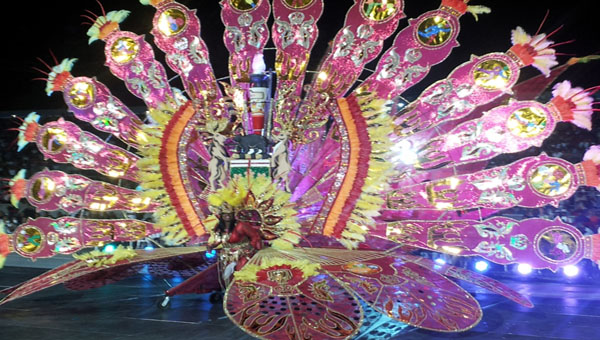Editor:
The Toronto Caribbean Carnival (TCC), also known as, Caribana, at its core, is a festival of masquerade or street theatre.
The steelpan and calypso/soca components of TCC, though artistically very significant for the festival’s unique brand, command far less priority in the festival organization and program.
Although the festival is called “Caribbean”, it is really a Trinidad and Tobago-controlled production — with support from Toronto’s Eastern Caribbean neighboring island communities and the Guyanese community. French and Spanish Caribbean participation is minimal at best. Jamaicans have created their own Jamaica-centric Jambana.
This is far removed from the original festival idea, coined in 1967, which was a much more “Caribbean” affair, or at least, had a more inclusive model.
The festival is a business, after all, and the mas’ producers — the dozen or so major band leaders — operate with Festival Management Committee (FMC) approval, as an exclusive cartel within the festival community, and jealously retain control on who is allowed to participate.
The competition aspects of the huge Grand Parade, Children’s Carnival and King and Queen productions, go along an embedded colonial-era arts competition model; one we’ve brought to Toronto and elsewhere, with our carnivals.
The prize monies and bragging rights bring out the worst practices. It’s a culture of “dog-eat-dog” that encourages “crabs in a barrel” behaviour, where cooperation is purely driven, by self-interest alone, and not for what’s best for the art of mas’ or for the public.
This pitting of festival mas’ producers against each other, is mainly why the Grand Parade suffers from perennial execution problems, and why the band leaders show little public support for the FMC, its parent company.
Any new player must deal with this cartel, or face exclusion. As one bandleader so eloquently put it… “Dey cah come in hey and tief we money!”
There is no mechanism for change. The City of Toronto — the festival’s core funder and enabler — is only concerned with clean audited financial reports, which the FMC, to its credit, has dutifully produced.
The City is loath to interfere; it’s bad optics to be seen as dictating to the Black/Caribbean, or any community, on how to run its business.
This pitting of festival mas’ producers against each other, is mainly why the Grand Parade suffers from perennial execution problems, and why the band leaders show little public support for the FMC, its parent company.
An individual band will deliberately delay or block the Parade, to gain some perceived advantage — paying audience be damned. The integrity of the Parade? Not my problem!
The FMC’s efforts to develop new events and grow existing ones, like its Gala event, receives no support from mas’ bandleaders; that is, unless they are receiving an award,
It’s an outdated type of arts development approach that is rightly frowned upon in the Canadian context, but is still alive and well in the TCC. Imagine running a company, where your department heads are at each other’s throats, refuse to cooperate for the festival’s benefit and try to undermine each other.
Welcome to the Toronto Caribbean Carnival. We love we bacchanal.
Roger Gibbs
 Pride News Canada's Leader In African Canadian & Caribbean News, Views & Lifestyle
Pride News Canada's Leader In African Canadian & Caribbean News, Views & Lifestyle


